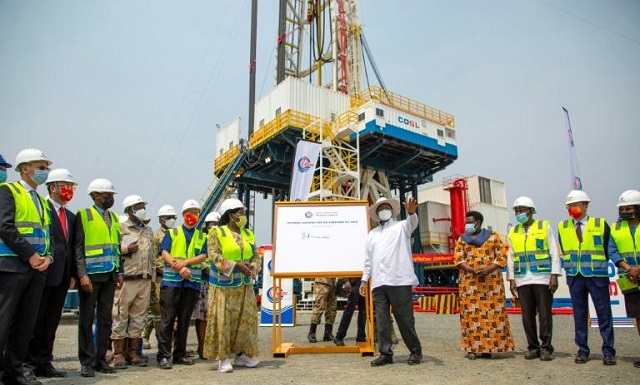
Latest data from the Petroleum Authority of Uganda shows that the country has a minimal emission rate of greenhouse gases, accounting for only 0.02% of global greenhouse gas emissions
Kampala, Uganda | JULIUS BUSINGE | Uganda’s non-governmental organizations (NGOs) are advocating for sustainable oil and gas development to safeguard the environment, dismissing reports suggesting opposition to oil and gas extraction.
Onesmus Mugyenyi, Deputy Executive Director of Advocates Coalition for Development and Environment (ACODE), emphasized the call for responsible oil resource management during a dialogue between the NGO sector and the government in Kampala on Nov. 22.
Chaired by Maj. Gen. Kahinda Otafiire, the Minister of Internal Affairs, the dialogue addressed challenges faced by NGOs in the oil and gas sector, including limited access to national-level information, disruptions by security operatives, negative perceptions, and bureaucratic hurdles within the NGO Bureau.
Mugyenyi’s remarks were sparked by Otafiire’s comments on pessimist voices on Uganda’s oil and gas sector.
“I have heard pessimists say, keep oil in the ground because of climate change. No one is telling Saudi Arabia, Kuwait, America, or Russia to keep their oil in the ground,” Otafiire said.
“The concern should be how do you get oil out of the ground safely without contaminating the environment. Know where every coin from the oil and gas sector is going.”
Latest data from the Petroleum Authority of Uganda shows that the country has a minimal emission rate of greenhouse gases, accounting for only 0.02% of global greenhouse gas emissions.
The authority plans to utilize excess gases in producing Liquified Petroleum Gas (LPG) to create a cleaner cooking fuel, aiming to substitute firewood and charcoal, which contribute to higher emissions.
Despite recent environmental activism against projects like the East African Crude Oil Pipeline, some suggesting Uganda’s oil resources may lose value amid a global shift to renewable energy, government officials maintain that the country will achieve its first oil production in 2025.
The East African nation signed the Final Investment Decision (FID) in February 2022, with projected investments of US$15-20 billion over 3-5 years. The government aims to retain at least 40% of this investment in the country through national content.
Peter Lokeris, the State Minister for Minerals, acknowledged the global transition to cleaner energy and stressed the need for collaborative dialogues for effective project management.
He emphasized the substantial investment in the country’s oil project, highlighting its potential benefits if managed effectively.
“Dialogues like these are key for us to be able to consult each other and make things better. We have spent a lot of money for many years on the oil project and it has to be recovered. Let’s work together; if we are doing it well it will pay off by benefiting people. We must find a way of doing things well,” he said.
So far, 11 wells have been drilled both at Tilenga and Kingfisher oil fields as of the end of last month. The project works for the East African Crude Oil Pipeline have commenced both in Uganda and Tanzania.
Several other infrastructure projects including Kabaale International Airport and roads have recorded significant progress ahead of the first oil, according to available information from the Ministry of Energy and Mineral Development and Petroleum Authority of Uganda.
 The Independent Uganda: You get the Truth we Pay the Price
The Independent Uganda: You get the Truth we Pay the Price


